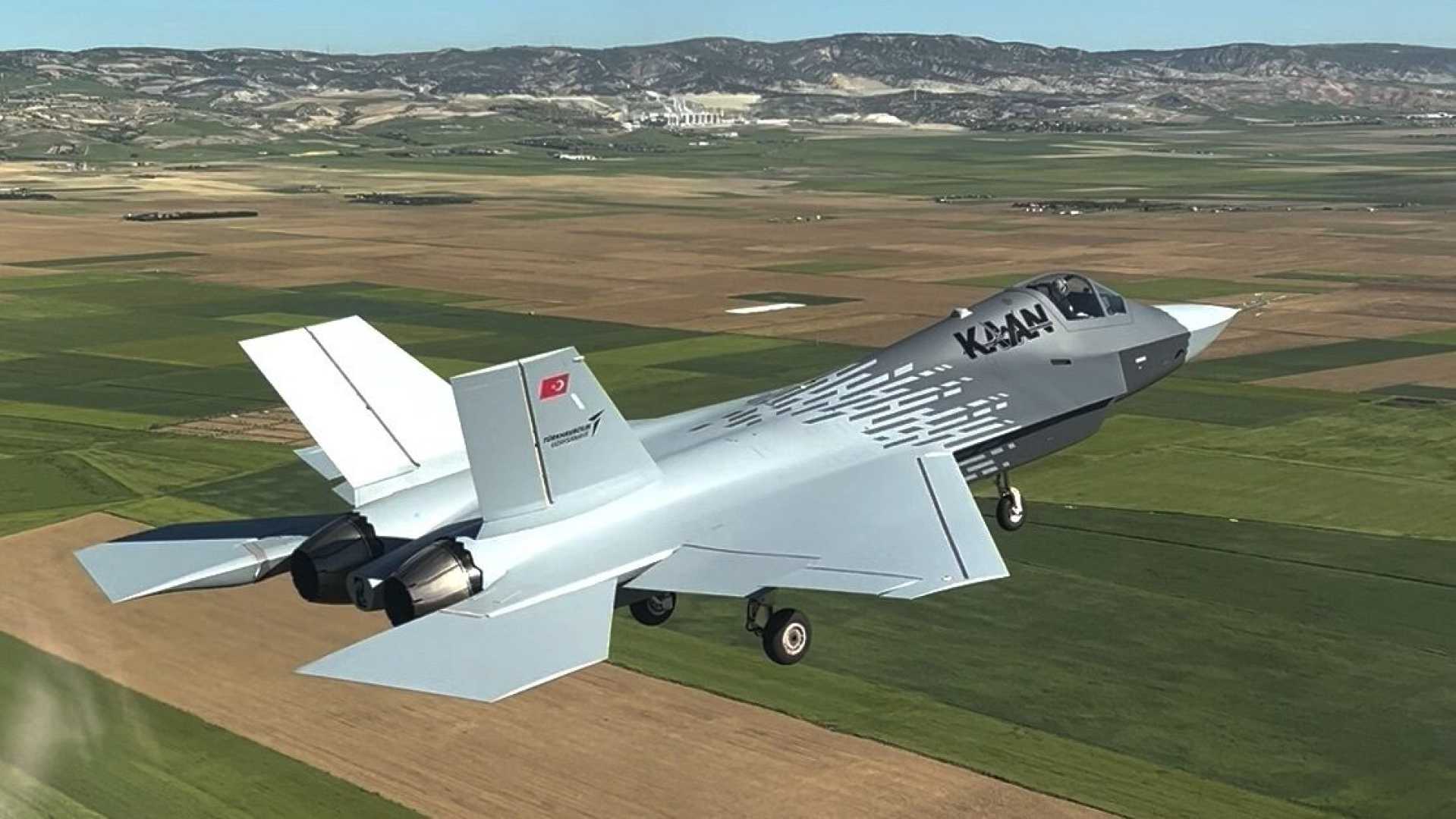World
Turkey’s KAAN Fighter Faces Geopolitical Risks Amid U.S. Loyalties

Ankara, Turkey – The Turkish KAAN fighter jet program has drawn attention as Turkey aims to join the elite fifth-generation air powers club. However, for international buyers, it represents a gamble on an aircraft still in development, tied to a politically sensitive supply chain controlled largely by the United States.
The KAAN made its inaugural flight in February 2024, and Turkish Aerospace Industries indicated plans to deliver around 20 “Block 10” models to the Turkish Air Force by 2028-2029, with full production expected to start in the 2030s. The KAAN program is seen as a breakthrough for Turkey’s defense sector, which has recently seen a surge in exports.
Despite its advancements, the KAAN’s reliance on American technology poses significant risks. Currently, all prototypes are powered by U.S.-made General Electric F110 engines. The procurement of these engines is subject to U.S. export controls, inhibiting the production and delivery of the aircraft without Congressional approval.
In September 2025, Turkish Foreign Minister Hakan Fidan acknowledged that the F110 export license was “stuck in Congress,” highlighting the external challenges Turkey faces in progressing the KAAN project. His candid statement sparked political backlash, prompting officials to stress “multi-source planning” and alternatives in the defense sector.
Turkey is working on developing a domestic engine, the TF-35000, expected to enter ground tests by the mid-2020s. However, progress on advanced fighter engines typically requires years of testing and refinement, raising doubts about Turkey’s ability to meet ambitious timelines.
Indonesia, projected to be the KAAN’s first international buyer, agreed to purchase 48 aircraft valued at approximately $10 billion, expecting technology transfers and collaboration. Still, the reliance on U.S. engines means Indonesia’s aircraft will also be influenced by U.S. policies regarding performance and maintenance.
The geopolitical implications of the KAAN project are considerable. Tensions between Turkey, the U.S., and other nations, like those over the S-400 missile system and disputes in Syria, create uncertainties that could disrupt the KAAN’s supply chain at critical moments.
Turkey has been cautious in its own military procurement, seeking Eurofighter Typhoons and revisiting F-16 acquisitions. This strategy suggests Ankara understands that KAAN may not solely fulfill its defense needs for many years.
The history of the Israeli Lavi program serves as a cautionary tale. Despite its technological promise, the program was shelved in the late 1980s due to U.S. pressure. Observers warn that without self-sufficiency and control over key technologies, Turkey could find itself in a similar predicament.
Turkey remains committed to the KAAN project amid mounting technological hurdles and geopolitical challenges. However, foreign partners must consider the risks associated with investing in a fighter jet that may be governed by variables beyond their control. Ultimately, the KAAN represents a fighter built on permission rather than complete autonomy, leaving both Turkey and its prospective buyers in a precarious position.












